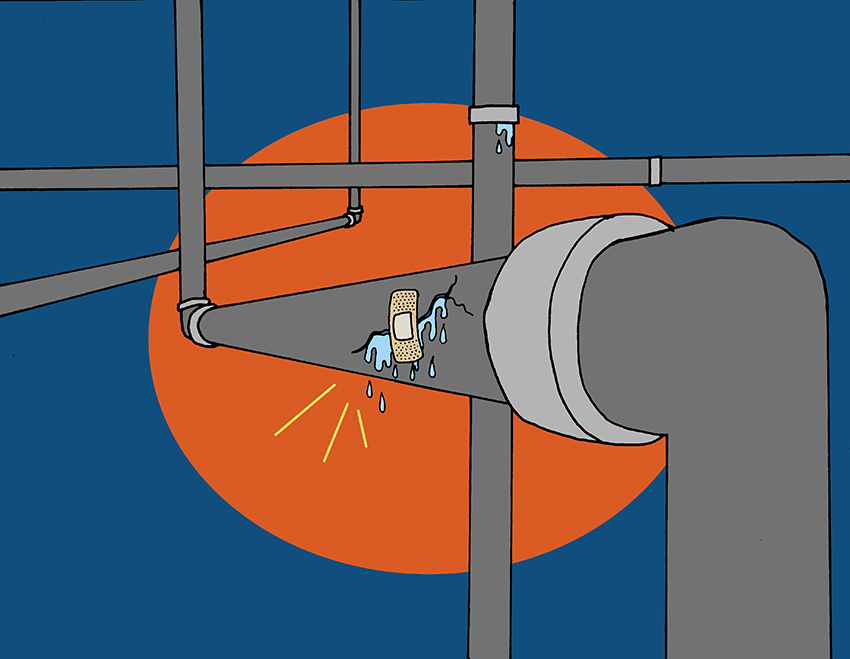America has a problem upholding environmental justice — the protection of the environment for all individuals regardless of race, income or other characteristics. Low-income groups bear a disproportionate burden from pollution, and efforts to fix its damage remain absent or come too late. Pollution-induced health problems do not have an easy fix, so instead of simply responding to environmental inequality after it occurs, the government must proactively enforce regulation and ensure accountability to prevent them from happening altogether.
The water crisis of Flint, Michigan, a city with a median household income of $24,679, demonstrates a classic example of the government’s failure in environmental justice. In April 2014, state officials in Flint failed to properly treat the new city’s water supply with anti-corroding agents. As a result, lead from aging distribution pipes was able to contaminate citizens’ tap water for months.
Last Thursday, the Obama Administration announced it would extend Medicaid coverage to the affected children and pregnant women of Flint. The recipients of this deal now have access to free health services, such as blood monitoring and behavioral health treatment, but this reactive response should not be seen as a victory.
For one, the extension is coming almost five months after Michigan switched Flint’s water supply back to its original source. Although the expanded services help affected residents, it’s coming far too late.
In addition, while the health services offered will help detect problems early and reduce future harm, the damaging effects of lead poisoning are irreversible. For these reasons, the extended Medicaid coverage should be seen as a cheap bandage over an extreme problem that could have been avoided by properly enforcing regulation.
Even though Flint’s water crisis dominated newspaper headlines, lead exposure continues to be dangerously high in cities across the county. In addition to drinking contaminated water, individuals can be exposed to dangerously high levels of lead from lead-based paints used in old households. This issue remains unsolved in cities such as Cleveland and Atlantic City, which both have low median household income levels similar to Flint. These individuals lack the income to fix the problem themselves, and government aid remains inadequate due to a lack of urgency.
However, health problems caused by environmental justice exist beyond just lead exposure for low-income households. These individuals cannot afford to live in areas with expensive housing. This often means living near cheaper industrial areas that have heavier pollution. Living in these places increases exposure to particulate matter, nitrates, sulfates and more — all have correlations to asthma and cancer.
This class problem is, unfortunately, related to race. Black people are a majority of the population in Flint, Cleveland and Atlantic City, and the national percentage of children in poverty is highest among blacks, according to the National Poverty Center’s data.
Exposure to hazardous elements and chemicals should never be acceptable, and it would be intolerably elitist to insist that safe water and clean air are things that must be purchased. Instead of letting low-income groups be exposed to dangerous substances and trying to solve the problems later, rules and regulation must be enforced to ensure environmental justice for all.
Chan is a journalism freshman from Sugar Land. Follow him on Twitter @BenroyChan.





















